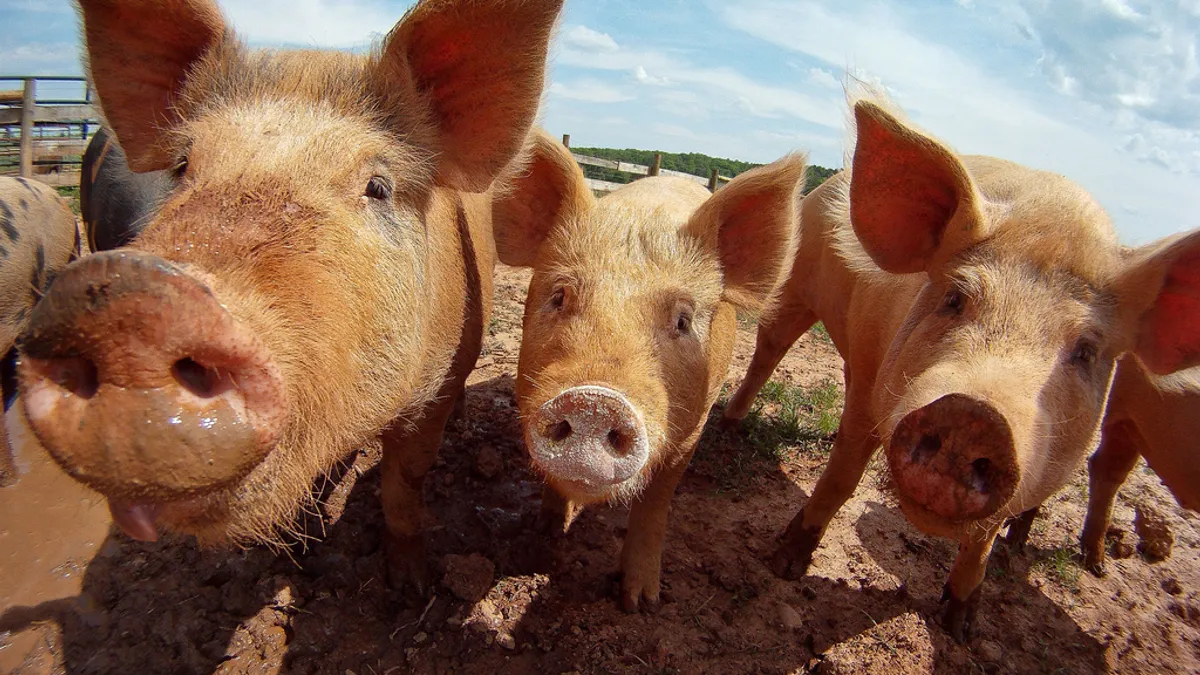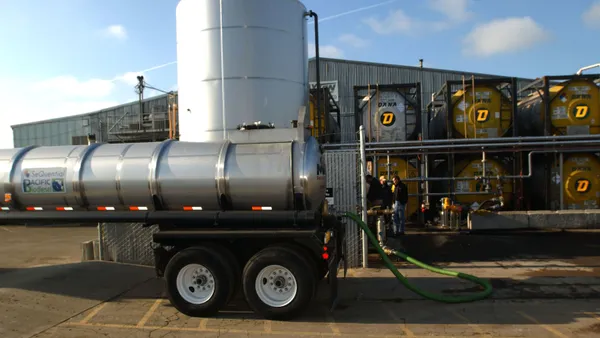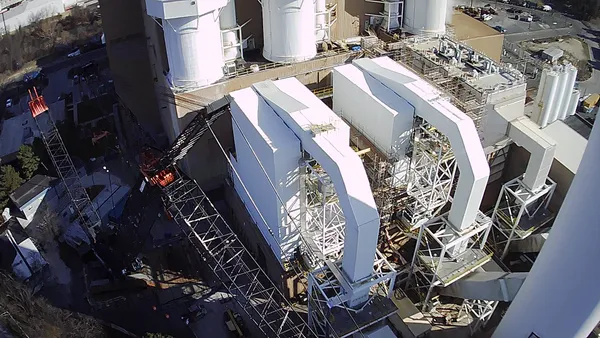Dive Brief:
- Boulder, CO-based Carbon Cycle Energy has announced plans to build a new facility in eastern North Carolina that will process swine- and poultry-based waste into biogas. Duke Energy plans to then power four of its plants with the waste, according to Charlotte Business Journal.
- The projects will allow Duke Energy to reach new compliance targets for swine and poultry waste, under North Carolina's Renewable Energy Portfolio Standard (REPS). "The gas from this project will generate carbon neutral electricity compared to the emissions that would result if the waste was left to decay naturally," said Duke Energy President David Fountain in a press statement.
- While the company’s official announcement is first expected next week, Charlotte Business Journal reported that Duke filed with the state last Friday on three of the biogas agreements. And Duke spokesman Randy Wheeless confirmed the fourth arrangement.
Dive Insight:
While this waste-to-energy project is fairly small scale, it is a big endeavor and a brand new one for Duke as the utility — typically in the headlines for its coal ash projects — works to meet state-mandated renewable energy requirements. This business move will definitely have its impact as Duke expects to have the capacity to generate about 125,000 megawatt-hours of energy a year from the agreements — enough to provide electricity to 10,000 homes in that timeframe.
"It is a win for the utility and a win for the swine and poultry industry," said Wheeless, as reported in Charlotte Business Journal. Duke is getting in on the ground floor and supporting the biogas development company as it delves into a major investment, while diverting what would otherwise rot in landfills.
"We still have additional work to do with licensing, local regulations, and completing our organic waste supply chain. But having a confirmed buyer like Duke Energy is a major step," said Carbon Cycle CEO James Powell as reported in the Journal.
Carbon Cycle plans to produce more than 1 billion cubic meters of pipeline-quality methane a year. Other companies are going along a similar path, including Green Cow Power, with its anaerobic digesters that also convert organic waste into energy.













